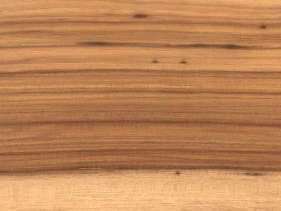
Water hickory (Carya aquatica)
Family: Juglandaceae
Common names: Bitter pecan, Bitter water hickory, Hickory, Pecan, Swamp hickory, Water hickory, Wild pecan
Distributed in: Mexico, United States (Central America, North America)
Distribution overview: Water hickory is found in low, wet woods from Texas east to Florida and north to southern Illinois and Virginia (distribution map). Individuals of this species can tolerate both a wetter site and a wider range of soil moisture levels than any other hickory, surviving on poorly drained, tight textured soils that are flooded in winter and parched in summer. It is a major component of two forest cover types: Sugarberry-American Elm-Green Ash and Overcup Oak-Water Hickory. In north Louisiana, water hickory is found in association with C. ovata and C. cordiformis on Guyton soils. The position of the species is distinct, however, with water hickory occupiing the lowest, wettest sites
Common uses: Building materials, Chairs, Chests, Concealed parts (Furniture), Decorative veneer, Desks, Dining-room furniture, Domestic flooring, Dowell pins, Dowells, Drawer sides, Drum sticks, Figured veneer, Fine furniture, Floor lamps, Flooring, Fuelwood, Furniture , Furniture components, Furniture squares or stock, Handles, Hatracks, Interior construction, Interior trim, Kitchen cabinets, Ladders , Living-room suites, Millwork, Musical instruments , Office furniture, Paneling , Parquet flooring, Poles, Radio - stereo - TV cabinets, Rustic furniture, Shafts/Handles, Tool handles, Turnery, Vehicle parts, Wheelwright work
Environment profile: Widespread
Tree size: Trunk diameter is 200-250 cm
Colors: the heart isPale brown, Reddish brownand the sapwoodPale brown, White.The grain isWavy, the textureMediumand the lusterMedium
Natural durability: Susceptible to attack by insects, Very little natural resistance
Odor: No specific smell or taste
Kiln Schedules: T8 - D3 (4/4) T6 - D1 (8/4) US
Kiln Drying Rate: Naturally dries slowly
Drying Defects: Splitting, Wet wood may cause honeycomb and ring failure during drying
Ease of Drying: Slowly
Comments: 'bird pecks' leave residue Deposits - Magnesium carbonate deposits are present in the wood, and 'Bird pecks' leave residue that crystallizes.Deposits in the wood This species is a True pecan, and can be separated from the True hickories by weight, and by the narrow bands of parenchyma, which appear between the rays and between the large earlywood pores. (In hickory the band occurs after the first row of earlywood pores.)
Blunting Effect: Severe effect
Cutting Resistance: Fairly Difficult to Very Difficult to saw
Gluing: Use special attention for best results
Moulding: Requires special attention.
A reduced cutting angle of 20 degrees is suggested for best
Movement in Service: Requires special attention.
A reduced cutting angle of 20 degrees is suggested for best
Nailing: Pre-boring recommended
Planing: Special attention required
Material with irregular grain requires a reduction in cutting angle of 20 degrees
Resistance to Impregnation: Wood is moderately resistant to treatment
Response to hand tools: Fairly Difficult to Difficult to Work
Sanding: Good sanding qualities
Steam bending: Excellent
Polishing: Good; Staining: Stains well
;
- Numerical data Metric
- Numerical data English
- Strength properties
- References
 |
 |
 |
 |
| Item |
Green |
Dry |
Metric |
| Specific Gravity |
0,57 |
0,58 |
|
| Density |
|
|
kg/m3 |
| Bending Strength |
699 |
1226 |
kg/cm2 |
| Crushing Strength |
60 |
106 |
kg/cm2 |
| Hardness |
|
|
kg |
| Impact Strength |
139 |
131 |
cm |
| Shearing Strength |
|
99 |
kg/cm2 |
| Stiffness |
101 |
139 |
1000 kg/cm2 |
| Tangential Shrinkage |
|
|
% |
| Radial Shrinkage |
|
|
% |
| Weight |
|
|
kg/m3 |
| Maximum Load |
1,33 |
1,33 |
cm-kg/cm3 |
| Toughness |
|
|
cm-kg |
| Static Bending |
|
|
kg/cm2 |
|
 |  |  |  | | Item | Green | Dry | English | | Bending Strength | 9947 | 17444 | psi | | Crushing Strength | 862 | 1519 | psi | | Impact Strength | 55 | 52 | inches | | Maximum Crushing Strength | 4567 | 8428 | psi | | Shearing Strength | | 1411 | psi | | Stiffness | 1450 | 1980 | 1000 psi | | Work to Maximum Load | 19 | 19 | inch-lbs/in3 | | Specific Gravity | 0.57 | 0.58 | | | Weight | 44 | 36. | lbs/ft3 | |
Heavy
Compression strength (parallel to grain) = high
Bending strength (MOR) = very high
Bending strength in the air-dry condition (about 12 percent moisture content) is very high. Compression strength parallel to grain, or maximum crushing strength, is also very high - higher than in Teak or Hard maple. It is a very heavy wood
Boone, R. S., C. J. Kozlik, P. J. Bois, and E. M. Wengert.1988.Dry Kiln Schedules for Commercial Woods:Temperate and Tropical.United States Department of Agriculture, Forest Service, General Technical Report FPL-GTR-57, Forest Products Laboratory, Madison, Wisconsin.Kaiser, Jo-ann.Wood of the Month:Hickory.Wood and Wood Products, September, 1990.Page 46.Lincoln, W. A.1986.World Woods in Color.Linden Publishing Company, Inc., Fresno, California.Little, E.L.1980.The Audubon Society Field Guide to North American Trees - Eastern Region.Published by Arthur A. Knopf, New York.Panshin, A. J. and C. deZeeuw.Textbook of Wood Technology.McGraw-Hill Series in Forest Resources.McGraw-Hill Book Company, New York.Rendle, B.J. Editor. 1969. World Timbers, Volume Two - North & South America (Including Central America and the West Indies). Published by Ernest Benn Limited, Bouverie House, Fleet Street, London.USDA.1987.Wood Handbook:Wood as an Engineering Material.Agriculture Handbook No. 72.United States Department of Agriculture, Forest Service, Madison, WisconsinUSDA.1988.Dry Kiln Operators Manual, Preliminary Copy.Forest Service, Forest Products Laboratory, Madison, Wisconsin.
|








